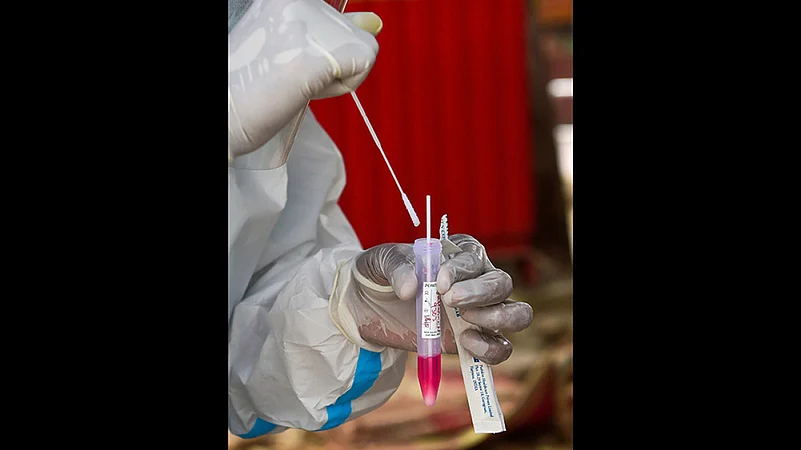Hong Kong launched a vaccination requirement to enter shopping malls, restaurants and a host of other places on Thursday as it battles an expanding omicron outbreak and tries to overcome vaccine hesitancy in parts of its population.
Businesses posted a QR code at their entrances for people to scan with a smartphone app to check their vaccine status before entering. Everyone aged 12 and over must have at least one dose of a COVID-19 vaccine to enter these places.
Beginning April 30, those aged 18 and above will be required to have two doses. Booster shots will be required for some, starting June 30.
Hong Kong, a semi-autonomous Chinese city, is struggling to impose a zero-COVID strategy patterned on the tough measures mainland China has implemented to keep the virus at bay.
A sharp rise in cases driven by the omicron variant has left the city short of the hospital beds and isolation rooms needed for a zero-COVID approach.
Mainland experts have been brought in to help put up temporary testing facilities and new isolation wards to handle mass testing of the entire population of 7.4 million people next month, similar to what China does in cities hit with even relatively small outbreaks.
The city of Hohhot in China's Inner Mongolia region launched the sixth round of citywide testing on Thursday after finding more than 220 cases.
In Hong Kong, the Health Department on Wednesday reported 8,674 new cases of people testing positive in the latest 24-hour period, the highest daily total since the start of the pandemic.
The ongoing outbreak, along with the new requirement to be vaccinated to enter certain premises, has driven more people to get a shot. About 5.9 million people, or 87% of the population 12 years old and older, have gotten at least one dose, according to the government.
Nearly 45,000 people received their first dose of vaccine in the 24 hours through 8 pm Wednesday, and more than 43,000 got either their second or third dose, the city government said.
The vaccine requirement also applies to fresh food markets, gaming centres, gyms, beauty parlours and barbershops, swimming pools, department stores and nightclubs. Exceptions are made for people making a delivery or picking up an item, including takeout food.
King Woo, who was waiting for takeout outside a restaurant, said that people should have the freedom to choose whether to use the vaccine pass.
“Even if I'm not vaccinated, I should have the right to dine-in," he said. "Therefore, in the current situation, I'd rather get takeaway.” At restaurants, an employee is required to check each customer's vaccine status and scan it with their smartphone.
At many other places, including shopping malls, there is no required check. The government said that police may conduct spot checks.
Link, an operator of 75 shopping centres and 52 fresh food markets, said it had set up the QR codes at the entrances and passageways to car parks and housing complexes, and reminded workers that they need to be vaccinated, too.
“Our team has been working hard to provide the safest possible environment for our tenants and the public,” George Hongchoy, the CEO of Link, said in a news release.
With PTI inputs.
















